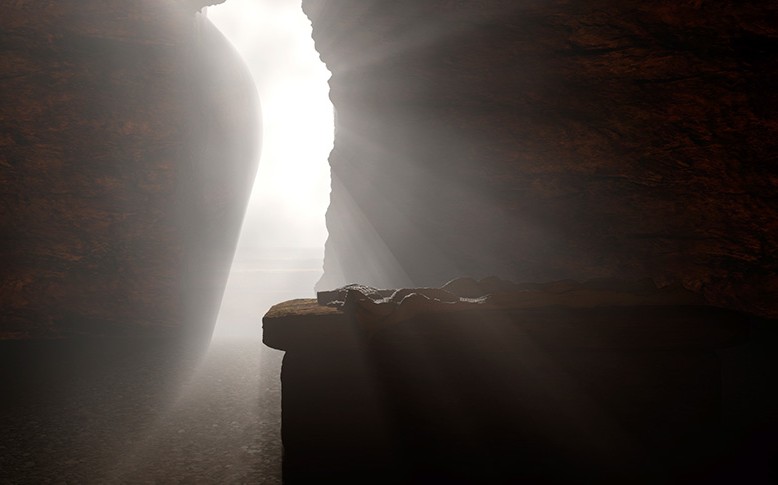Recently, I watched a video which featured a recorded lecture by noted astrophysicist Neil deGrasse Tyson. A Catholic lady from the crowd asked Tyson if he believed in God. Tyson did not negate belief in God, but demonstrated a problem that he held with the Christian view of God’s goodness. Tyson told the story about the birth of the modern atheist movement. According to Tyson, the modern atheist movement stemmed from 1700’s philosopher Voltaire, who witnessed a massive earthquake on All Saints Day in 1755 in Lisbon, Portugal. The largest number of fatalities came from those worshiping in cathedrals which were, as Tyson noted, “the tallest, biggest buildings” (Tyson 2014, YouTube). Following the earthquake, a tsunami leveled the city, killing 80,000 people. Many theologians of the day purported that such an act was a display of God’s judgment. However, Voltaire and others noted that the sinful red light district of the city was largely untouched while the religious individuals of the town were killed. Responding to Christian philosopher Gottfried Leibniz–who postulated that we live in the best of all possible worlds–Voltaire proclaimed that this was not the best of all possible worlds indicating that either God was not all loving or God was not all good. In like manner, Tyson said that he “could not see the all goodness of God, seeing how everything in the universe wanted to wipe us out.” Tyson went on to say that he could not see how “God was all good…if we define good by being concerned with our health and longevity—which is how I would define good” (Tyson 2014, YouTube). So, how does a Christian respond to Tyson’s, as well as Voltaire’s, accusations? Note–by addressing Tyson, the article also responds to Voltaire’s claims.
1. Creation is Fallen—it’s Good not Perfect.
First, Tyson assumes that for God to be good, the universe must be perfect. However, the Bible never states that the universe is perfect. The opening chapter of the Bible concludes with the words “And God saw everything that he had made, and behold, it was very good” (Genesis 1:31a).[1] One must understand that the universe is not perfect. It has been tainted by rebellion. First, it was tainted by the rebellion of Satan. Jesus said, “I saw Satan fall like lightning from heaven” (Luke 10:18). This fall is also accounted in Isaiah as the prophet proclaims, “How you are fallen from heaven, O Day Star, son of Dawn! How you are cut down to the ground, you who laid the nations low” (Isaiah 14:12)! This fall led to the fall of humanity as accounted in the 3rd chapter of Genesis. The Adversary (Satan) must have been already fallen as he led humanity away from the personal presence of God. The apostle Paul denotes that this fall has led to the “whole creation…groaning together the pains of childbirth until now” (Romans 8:22). The great news is that God is working to create a new heaven and a new earth (Revelation 22) which will not host the trouble, death, and uncertainty that the present day creation holds. The modern creation is good…it is the best of all possible worlds which allows for freedom of the will. But it is not the best creation, for the best is yet to come.
2. Eternity trumps Earthly Longevity.
Tyson holds a problem in his definition of “goodness.” If goodness only denotes a person’s present well-being, God’s goodness is shallow at best. As James denotes, life is but a “mist that appears for a little time and then vanishes” (James 4:14). If the Bible is correct in that Christians have the promise of eternity, then even great tragedies such as the one in Lisbon is somewhat justified in that the people of God will never be separated from the presence of God. The eternity they enjoy now far outweighs the momentary pains suffered in the earthquake. Therefore, if eternity in heaven exists, then God’s goodness is ultimately justified even in the midst of such tragedies. Let’s face it—everyone will have to walk through the passages of death at some point. How good would it be of God to leave us in this fallen world for several millennia? This is not to say that life on earth is not important. It truly is a blessed thing to be alive and well. Nevertheless, one should not lose the focus on the blessed hope that is found in an eternal existence with God in heaven.
3. Humans Cannot Know All Intricate Details—but God Does.
Third, as one discovers in the book of Job, an individual cannot understand and know all that God does. Could it have been that great sin was found in the Lisbon of 1755? Possibly. Could God have delivered judgment to the city? Potentially. In such cases, an individual does not know the hearts and minds of the people in that day. However, it could have been that the city was a blessed city, filled with good, godly people, as well. If the people did nothing wrong, then why did God allow such a tragedy to occur? Consider Job. Job asked the same questions. Job was a man who was a “blameless and upright man, who fear[ed] God and turns away from evil” (Job 1:8). Job endured many hardships and wanted to take God to court in order to charge God with unfair dealing. However, God responded and asked Job, “Where were you when I laid the foundation of the earth? Tell me if you have understanding” (Job 38:4). In other words, God demonstrated that he knew all the intricate details and how ultimate good can come from what appears to be great tragedies in life.
4. Consider the Alternative.
Lastly, consider the alternative. What if a good God did not exist, what then? Such tragedies would be even worse. What would Tyson say to one who lost a loved one and had no hope of seeing that person again? “Too bad. That’s the way the cookie crumbles.” With the God of the Bible, tragedies have a light at the end of the tunnel; a light which is illuminated by the “Light of the world”—Jesus Christ. Even in the worst of circumstances, Christians have the hope found in the resurrection of Christ.
Therefore, I do not accept Tyson’s, nor Voltaire’s, claim that tragedies demerit the goodness of God. In fact, philosophers such as William Lane Craig have noted that the theodicy problem has been solved. Evil can exist in a world developed by a good and all powerful God if God holds good reasons for allowing the evil to take place, or has an ultimate good stemming from such an allowance.
Tyson, Neil deGrasse. “Neil deGrasse Tyson-‘Do You Believe in God?’ (Must Watch).” Atheist Digest Channel. YouTube (October 13, 2014). Accessed May 18, 2015. https://www.youtube.com/watch?v=ocvIeycJrQ0.
[1] Unless otherwise noted, all Scripture comes from the English Standard Version (Wheaton: Crossway, 2001).
Copyright May 2015. Brian Chilton.






So Basically you said absolutely nothing to refute what Dr Tyson said,you just ‘apologised’ it away. Although I admit that questioning whether God was punishing the believers would be presumptuous, but questioning whether God exists or whether he cared enough to prevent evil, pain and suffering are valid questions.
But your approach is “if God saves a life,then it shows just how awesome he is,and if he doesn’t,well still great!because that person goes to heaven anyways” So by doing that you have created an unfalsifiable claim,which of itself proves that that entity could not possibly exist because of the enormous efforts that have to be undertaken to ‘protect him”
Kelu,
First of all, thank you for your response. In response, I would say that I did not merely “apologize away” the issue. Rather, I offered feasible options to explain why a good and all-powerful God may allow disasters to take place. Furthermore, if you allow yourself to hold an eternal perspective and grant the possibility that a wondrous place known as heaven exists, then momentary afflictions pale in comparison to an eternity of bliss. If, however, you merely hold to a finite existence of the here and now, then I could see why my answers would not satisfy. But consider this. If materialism is true, then this life is quite hopeless and miserable. We live, we work, and we die. However, the Christian perspective offers far more hope in that salvation is found to allow an eternity of goodness, peace, and love. Could there be anything better than that? This would lend the skeptic to say, “Yeah, but we must follow what is necessarily true.” I would argue that the existence of a loving, powerful God is necessarily true. Nevertheless, if there is a chance that a good and loving place called heaven exists, then my claims hold.
Blessings,
Brian Chilton